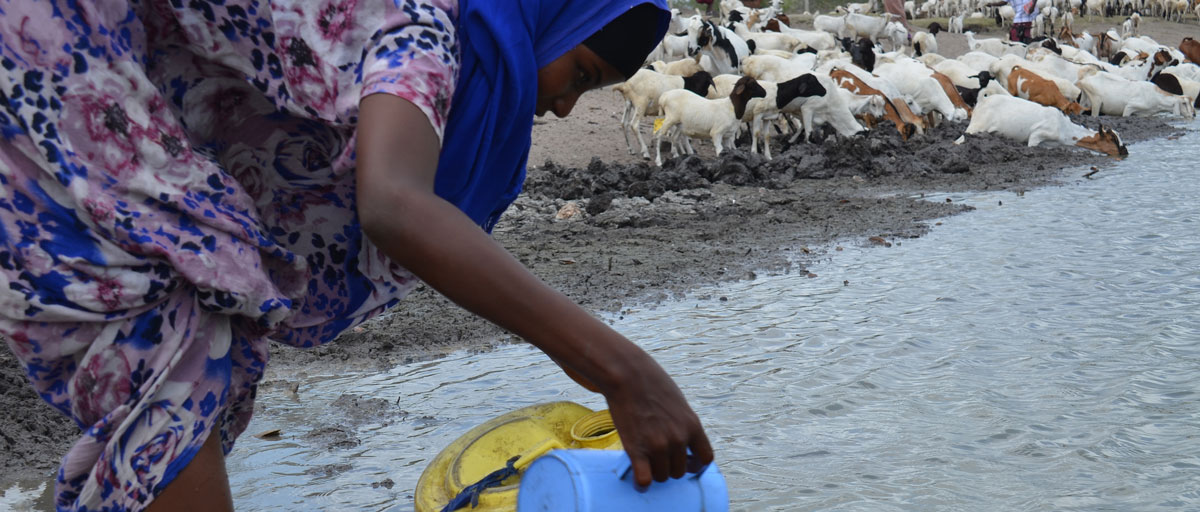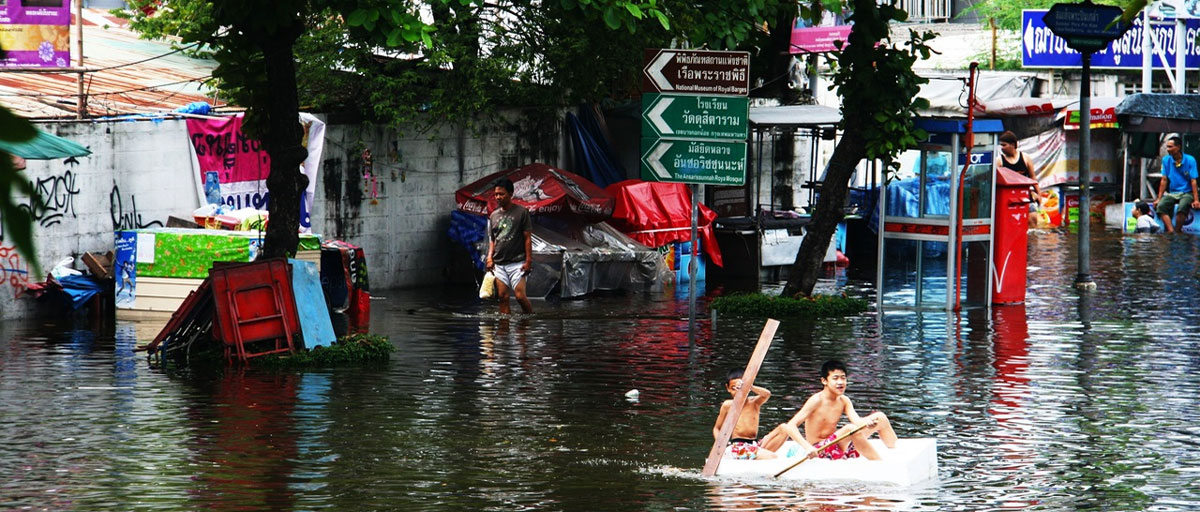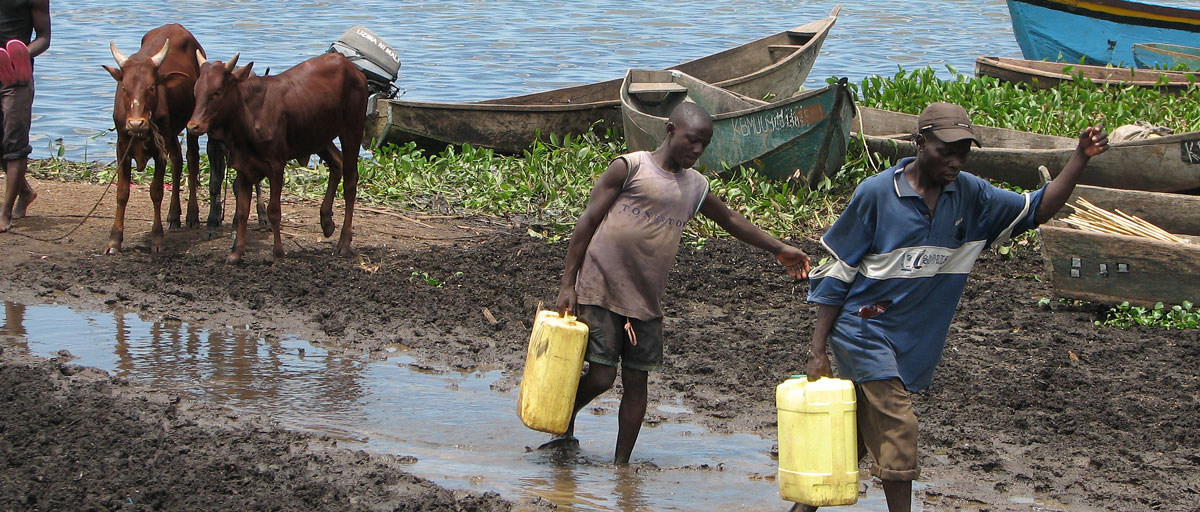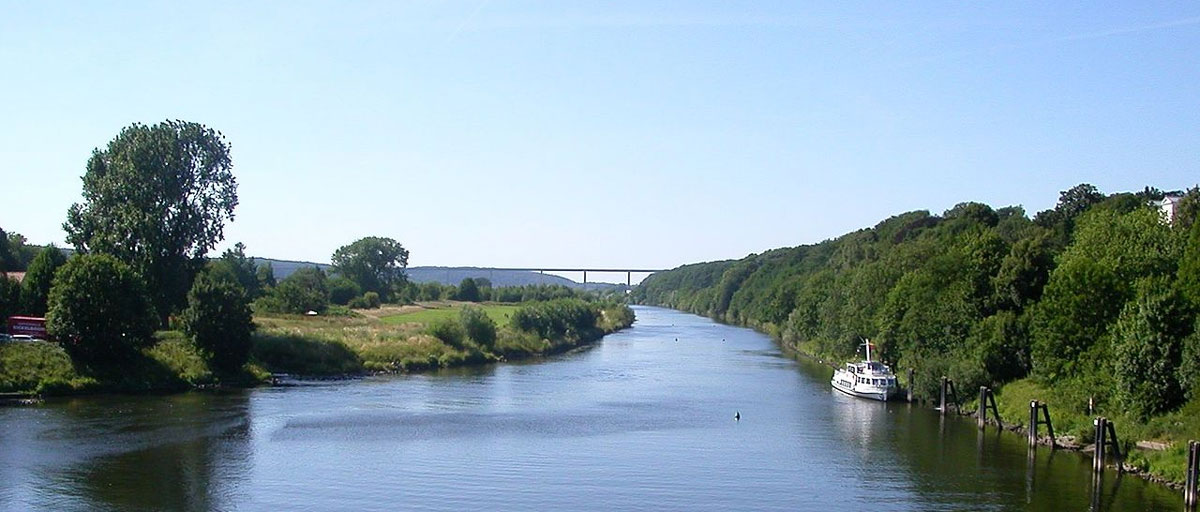Bildtext får vara max två rader text. Hela texten ska högerjusteras om den bara ska innehålla fotobyline! Photo: B. Christensen/Azote
WATER MANAGEMENT
A perspective on the future of Africa’s water resources
Researchers predict the impact of climate change on Africa’s water resources
- Predictions of climate change in Africa involve rising dryness across the continent, causing water scarcity. This increase in aridity threatens water and food security for a growing population
- Researchers address the gap in water resource predictions by charting hydroclimatic changes within the continent that correspond to two climate change scenarios
- While following the Paris Agreement might lessen the strength of changes, it is not enough to halt the impact of changes in water conditions across Africa
Without water, life on earth would cease to exist. While this seems drastic, a rise in water scarcity is quickly becoming the reality. As a continent facing the highest rates of malnutrition, a critically low water supply, and a growing population, Africa is especially vulnerable to the extremes of a changing climate. This is projected to continue increasing, while impacting water and food security.
Efforts made by the Paris Agreement aim towards the 2° target for water resources within Africa, but its method is a contentious topic. For instance, there is a lack of modelling the effects that climate change scenarios could have on Africa’s water resources. Most scenarios focus on the land component and leave out an analysis of the hydroclimate. Thus, a predictive vision of the effects of climate change scenarios on African water resources is missing.
Centre researchers Luigi Piemontese, Ingo Fetzer, Johan Rockström, and Fernando Jaramillo recognise this challenge in a new article published in the journal Earth’s Future. The study offers a more predictive perspective into the future of Africa’s water resources.
Even if the Paris Agreement target was achieved, the water modifications will remain disadvantageous for Africa.
Luigi Piemontese, lead author
Losing water, losing resources
The researchers highlight how an excess of water evaporating from land and into the atmosphere poses a major threat to food and water accessibility, considering 95% of agriculture in Africa relies on rainwater.
These facts demonstrate the detrimental impact of water loss on major resources. But in order to measure this loss, researchers point out the significance of applying a more holistic view of water loss overtime. Using a method to measure changes in the cycles of precipitation and evaporation helps with tracking fluctuations between wet and dry conditions.
The study’s authors applied this to two Representative Greenhouse Gas Concentration Pathways: the Paris Agreement (RCP4.5) and the business as usual (RCP8.5) in order to follow how the patterns of change within water resources could reflect the changes in these scenarios.
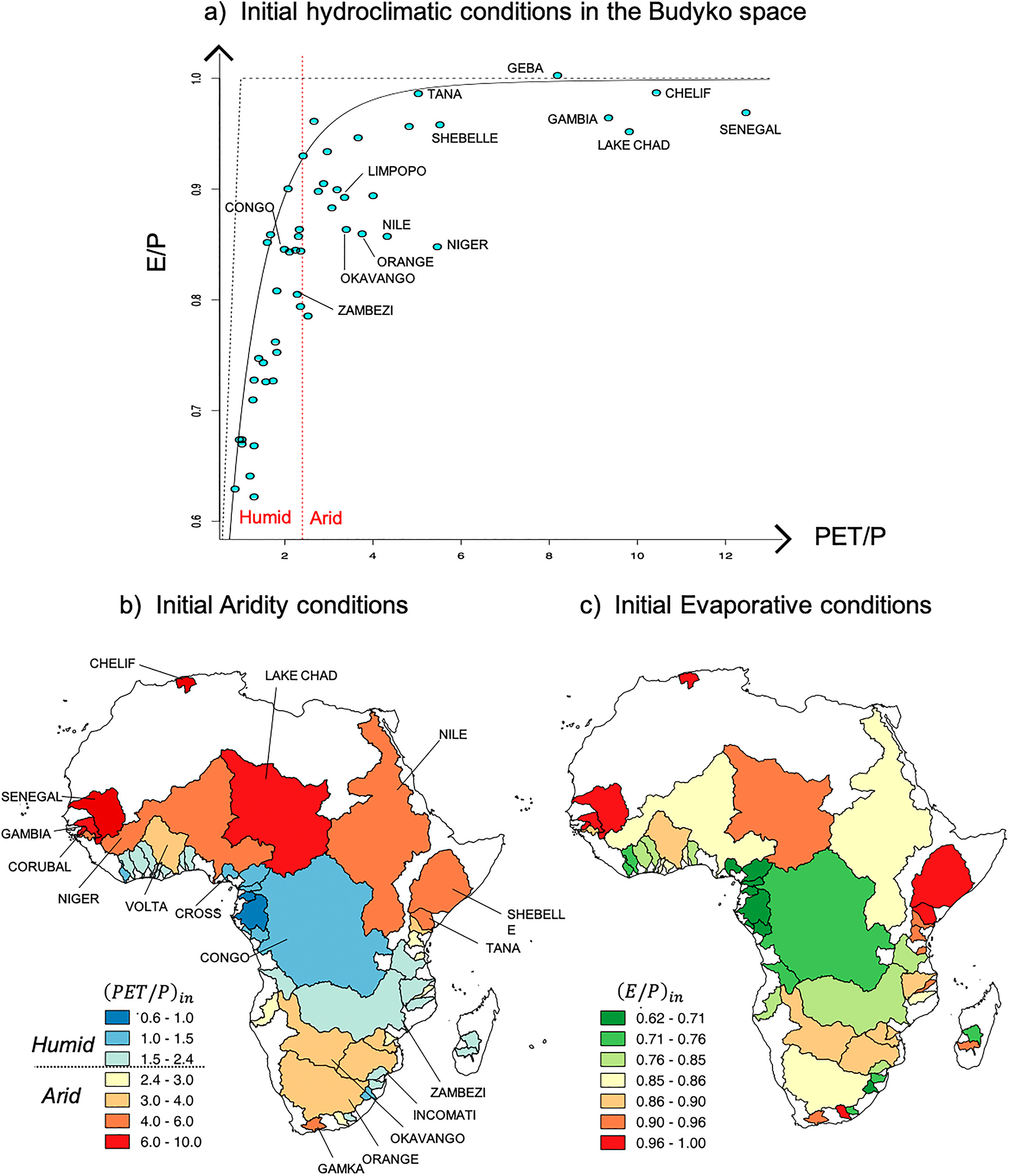
Initial hydroclimatic conditions of the 50 largest African basins represented in Budyko space and given by the mean 30‐year values of the aridity index (PET/P) and evaporative ratio (E/P) for the period 1960–1989. Maps of (b) the mean aridity index (PET/P) and (c) evaporative index (E/P). Click on illustration to access the study
A roadmap to hydroclimatic change
The four groups of hydroclimatic change represent different regions within Africa and their respective changes in water conditions. Researchers note that predicted changes in the African hydroclimate could exacerbate water scarcity, especially in the driest regions north and south of the continent.
The results highlight four regions of projected changes for water resources in Africa:
1) Southern Africa will experience increased aridity (higher evapotranspiration) at rates similar to Northwestern Africa
2) The Niger, Chad, and Nile basins along with the Sahel strip will experience decreasing aridity
3) The Congo and tropical coast of the western region becomes more humid with increased precipitation and no change in aridity
4) Sub-Humid basins in Southeastern Africa become more arid with less precipitation.
The researchers say that “This result highlights the potential of our hydroclimatic assessment to provide a roadmap to understand the major implications of hydroclimatic change on water resources and plan for effective and sustainable adaptation strategies at the regional level.”
Overall, the four regions are expected to experience similar fluctuations in water resources, but the degree of this change varies. In the business as usual scenario, higher levels of hydroclimatic change are predicted to occur compared to the scenario aligned with the Paris Agreement. However, both scenarios predict similar shifts within the hydroclimate despite complying with the Paris Agreement.
Rather, the study’s authors suggest that “African countries can instead have more jurisdiction on local land management plans and thus directly contribute to preserve freshwater resources using water harvesting and other sustainable agricultural practices.”
Methodology
Researchers evaluated the patterns of hydroclimatic change in fifty basins within Africa and measured how they would match the Paris Agreement (RCP4.5) and the business as usual (RCP8.5) scenarios. Testing the impact of both scenarios on the African hydroclimate, researchers tracked these changes from 1960-1989 and 2070-2099. Nine models were taken from a set of climate simulations, the Coupled Model Inter-comparison Project (CMIP5), in order to represent changes in the hydro climate. The Budyko framework was applied to measure the connection between aridity index (PET/P) and evaporative ratio (E/P) overtime. Wind rose plots were used to chart hydroclimatic changes, and alterations in the hydroclimate were divided into four regions of projected change.
Piemontese, L., Fetzer, I., Rockström, J., Jaramillo, F. 2019. Future hydroclimatic impacts on Africa: beyond the Paris Agreement. Earth's Future, Volume7, Issue7, July 2019, Pages 748-761

Luigi Piemontese's research focuses on freshwater consumption calculation in the framework of the Planetary Boundaries.
